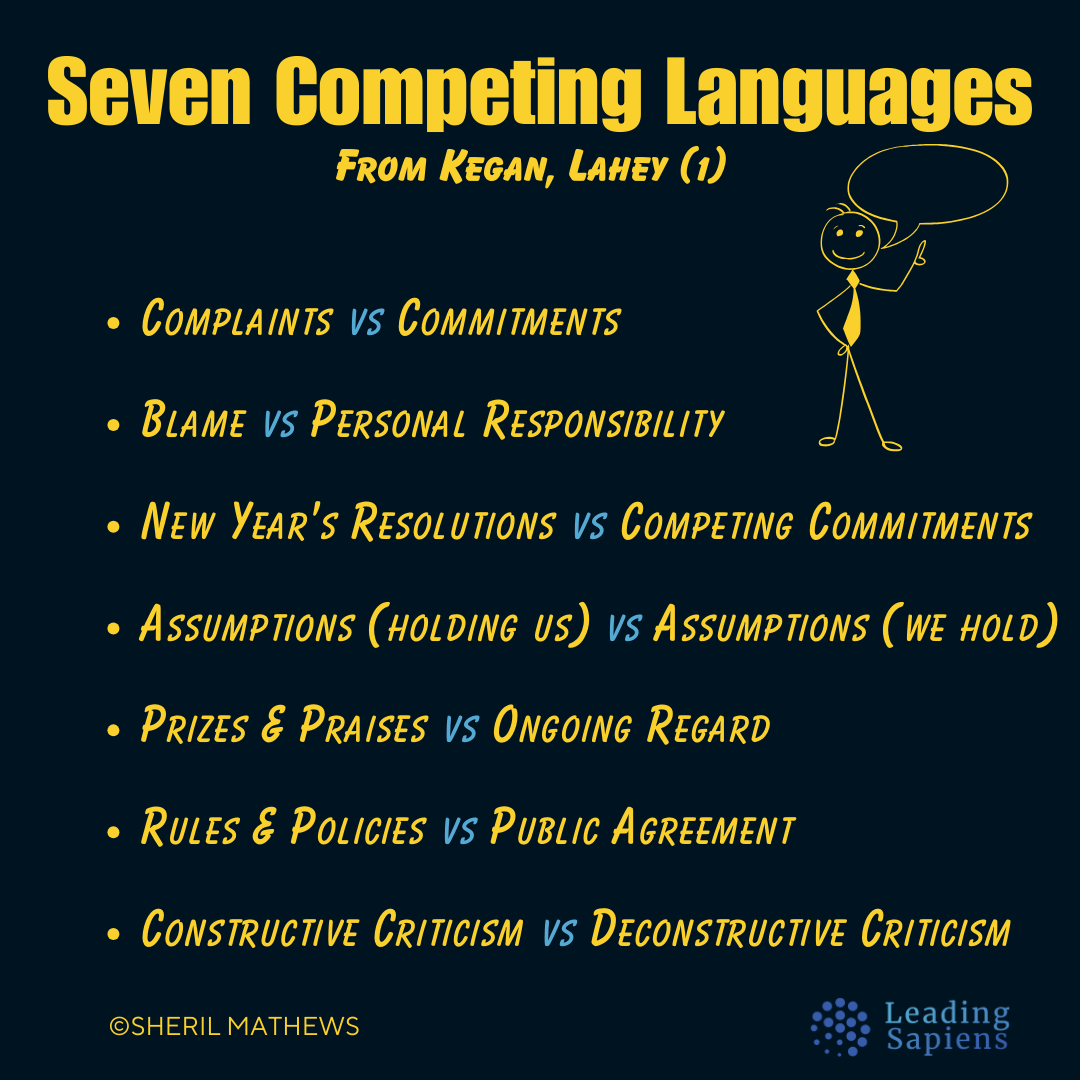Knowing what they like
I am very fond of strawberries and cream, but I have found that for some strange reason, fish prefer worms. So when I went fishing, I didn’t think about what I wanted. I thought about what they wanted.
—Dale Carnegie
All too often, we are so gung-ho on our own point of view, we forget what the other person really wants. This applies to both first dates and executive pitches. Are you speaking your language or your stakeholders’ language?
Related:
Balancing Advocacy and Inquiry
Most advice on leadership communication focuses on getting better at advocacy – crafting the message, effective delivery, and so on. What leaders forget is to balance their advocacy with equal amounts of inquiry. How are the two different and why does it matter? I take a closer look at the critical

Filters in Communication
When we communicate, there are several layers of invisible filters that can muddle the message. Knowing the most common communication filters we use can help avoid the traps of miscommunication and make sure our message gets across. Why we use filters One key aspect of leadership is that your words

Pay attention to your frame
While on a family vacation in Santa Fe, New Mexico, a father and his three‐year‐old daughter were out for a stroll. While stopping to admire a particularly beautiful landscape, the father took a picture of his little girl against this lovely backdrop. This was long before the days of the smartphone camera. The girl had been told by her father many times that film had to be taken to a special store to be developed and that it would be several days before they could see their photographs. Although she knew this information, she asked the question anyway, as three‐year‐olds are so prone to do, “Why can't we see the picture right now?” Her father patiently offered the explanation yet again, but this time her question settled into his mind in a way it hadn't before… Why can't we see the picture right now?
Later, Edwin Land, founder of Polaroid, would recall that day in 1943 and he would add that “within an hour, the camera, the film, and the physical chemistry became clear.” As an armchair physicist, he worked out in his head a new kind of photography system that would include all of the components of a conventional darkroom in a single handheld device – even before they returned from their walk. He called his patent attorney that same day. There was a certain power in the way in which his daughter asked her question. It caused Land to ask the question of himself, a question he had never really considered before. Questions can be powerful.
— From Strategic Doing
The way we frame our question (and answer) goes a long way in how others respond to it. How much time have you spent designing the frame you'll use?
Related pieces:
The Power of Framing in Creating Psychological Safety
Framing is a key skill to create psychological safety and improve performance. But most leaders are unaware or don’t know how to get better at it.

Messes vs problems
Managers are not confronted with problems that are independent of each other, but with dynamic situations that consist of complex systems of changing problems that interact with each other. I call such situations messes.
Problems are abstractions extracted from messes by analysis; they are to messes as atoms are to tables and charts . . . Managers do not solve problems: they manage messes.
— Russ Ackoff quoted in The Reflective Practitioner
You get paid a lot more if you can solve undefined “messes” instead of well-defined “problems.” Conflating the two is a persistent source of frustration and also opportunity.
Related :
Problem-Solving is Overrated. Problem-Setting is More Critical.
Almost everyone has the term “problem-solving” featured prominently in their resumes. Conversely, barely anyone uses the term “problem-setting”. Except in complex domains like leadership, problem-setting is often more critical than problem-solving. What is problem-setting, how is it different from good old problem-solving, and why is it critical to effective leadership?

Technical Problems vs Adaptive Challenges
If you’re a leader, you’ve likely faced a problem that refused to be solved by your usual methods. A problem that made you question everything you knew about leadership. Consider this scenario: You’re a senior manager, respected for solving complex business challenges. But now, you’re confronting an issue that’s defying

Recent newsletter editions ICYMI
Competing Languages of Leadership
Leadership advice often focuses on communication style: how to be clearer, more persuasive, etc. While valuable, these tactics eventually hit a ceiling. You learn techniques but revert to old patterns under pressure, or the improved “delivery” somehow doesn’t create the changes you hoped for. That’s because language operates at a

Career Myths: Lies We Are Sold
I recently wrote a piece on leadership myths. While writing, I realized these weren’t just organizational myths. They’re also personal myths about careers. The same cognitive leaps that make us believe in heroic CEOs also lead us to fall for formulaic career paths. The attribution errors that distort









